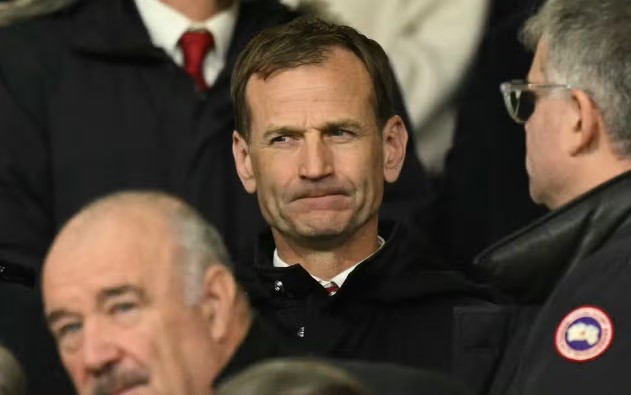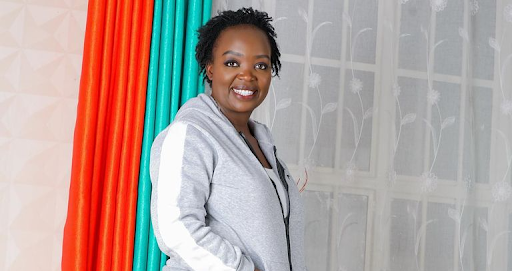Manchester United has officially announced the departure of sporting director Dan Ashworth, just five months after his highly publicized appointment. The unexpected news has sent shockwaves across the football community, especially given the significant investment and high expectations surrounding his arrival.
Strategic Disagreements with Sir Jim Ratcliffe
Ashworth’s exit reportedly stems from irreconcilable strategic disagreements with Sir Jim Ratcliffe, the prominent businessman and key stakeholder at the club. Sources close to the matter suggest that tensions escalated over differing visions for United’s future. Ratcliffe, whose INEOS group is involved in the club’s affairs, was allegedly dissatisfied with Ashworth’s approach, particularly during the summer transfer window.
The rift became evident when Ratcliffe voiced concerns over Ashworth’s decision-making, including his emphasis on long-term planning and focus on young talent acquisition. While Ashworth advocated for building a sustainable model similar to his previous successes at Brighton & Hove Albion, Ratcliffe reportedly pushed for immediate results to restore United’s glory.
Ashworth’s Brief but Impactful Tenure
Dan Ashworth was brought in to modernize United’s football operations, with the club paying a hefty £3 million in compensation to secure him from Brighton. His arrival was seen as a bold step towards restructuring United’s recruitment strategies and aligning them with a data-driven, analytical approach.
One of Ashworth’s notable contributions was championing the pursuit of manager Rúben Amorim, a rising star in European football management. This decision demonstrated his intent to inject fresh ideas into the club, focusing on dynamic and progressive leadership. Amorim’s appointment was viewed as a calculated gamble aimed at fostering a new era of success.
Despite his short stint, Ashworth’s influence was felt in several key areas, including the scouting network and the club’s academy structure. Insiders claim he had already initiated plans for improving player development pathways and integrating youth talent into the first team.
Tensions Over Summer Transfers
The summer transfer window became a major point of contention between Ashworth and Ratcliffe. While Ashworth prioritized strategic signings with long-term benefits, Ratcliffe reportedly pushed for marquee acquisitions to appease the fan base and boost commercial appeal. This clash of ideologies created friction within the club’s hierarchy, ultimately contributing to Ashworth’s abrupt departure.
United’s inconsistent performances on the pitch added further pressure, with fans and stakeholders demanding immediate results. The lack of cohesion between the sporting director’s vision and the stakeholder’s expectations seemed to exacerbate the situation.
What’s Next for Manchester United?
The sudden departure of Ashworth leaves Manchester United with significant uncertainty. The club has yet to outline a clear plan for replacing the sporting director, sparking speculation about potential candidates. With Ratcliffe’s growing influence, the next appointment is likely to align closely with his vision for the club.
Fans and analysts are now questioning whether United can maintain stability amid the ongoing turbulence. The departure also raises concerns about the club’s ability to execute a cohesive long-term strategy while balancing the immediate demands of a global fan base.
A History of Turmoil in the Sporting Department
Ashworth’s exit adds to a growing list of sporting directors who have struggled to find success at Manchester United. His predecessor, John Murtough, faced similar challenges during his tenure, with criticism over inconsistent recruitment and lack of clarity in decision-making. This revolving door of leadership has hampered the club’s efforts to establish a stable and effective footballing structure.
The Legacy of Dan Ashworth
Although his time at Old Trafford was brief, Ashworth’s departure highlights the complexities of running a club as globally recognized and commercially driven as Manchester United. His focus on sustainable development and innovative strategies could have been a game-changer for the club, but the clash of visions proved insurmountable.
Ashworth is likely to be remembered as a figure whose potential impact was curtailed by internal dynamics. Meanwhile, his departure leaves Manchester United at a crossroads, with fans eagerly awaiting the next chapter in the club’s pursuit of footballing excellence.
Conclusion
Manchester United’s decision to part ways with Dan Ashworth underscores the challenges of balancing long-term planning with the immediate demands of modern football. As the club navigates yet another leadership change, the pressure mounts to deliver on its promise of restoring former glory. The upcoming months will be critical in determining whether United can turn this setback into an opportunity for reinvention.





